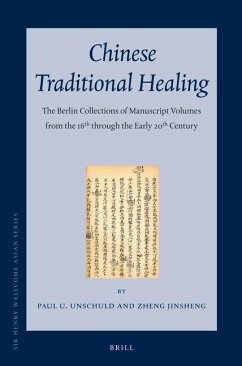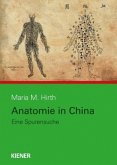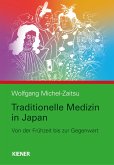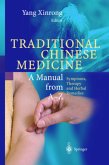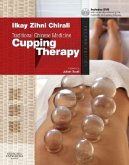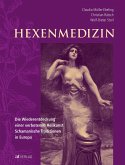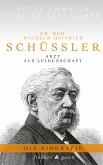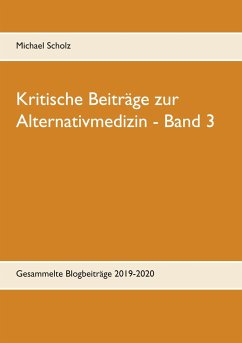Research on past knowledge, practices, personnel and institutions of Chinese health care has focussed on printed text for many decades. The Berlin collections of handwritten Chinese volumes on health and healing from the past 400 years provide a hitherto unprecedented access to a wide range of data. They extend the reach of medical historiography beyond the literature written by and for a small social elite to the reality of health care as practiced by private households, lay healers, pharmacists, professional doctors, magicians, itinerant healers and others. The nearly 900 volumes surveyed here for the first time demonstrate the heterogeneity of Chinese traditional healing. They evidence the continuation of millennia-old therapeutic approaches long discarded by the elite, and they show continuous adaptation to more recent trends.
'This resource provides a glimpse into a vast store of medical knowledge that was gathered and transmitted among Chinese society's "common folk," including family records, lay and professional healers' private notebooks, and pharmacies' documentation of proprietary medicinal recipes. It is impossible to assess the importance of such a compilation without superlatives; scholars in the field will want to jump on the first flight to Berlin to study the manuscripts in person. Faculty and researchers specializing in classical Chinese medicine will find this text unique. Summing Up: Highly recommended. Researchers/faculty and professionals.'
J. Saxton, Bastyr University, CHOICE (January 2013)
`Mit einem dreibändigen Werk erschließt der Berliner Sinologe und Medizinhistoriker Paul U. Unschuld auf nahezu dreitausend Seiten einen bedeutenden heilkundlichen Schatz.(...) Mit dieser Erschließung der handschriftlichen
Bücher zur chinesischen Heilkunde aus den vergangenen Jahrhunderten eröffnet uns Paul Unschuld einen bisher nicht nur in der westlichen Welt, sondern auch in China und Japan völlig vernachlässigten Quellenbestand. Diese handschriftlichen Aufzeichnungen sind deshalb so wichtig, weil sie außerhalb der gesellschaftlichen und
weltanschaulichen Zwänge stehen, denen sich gedruckte Werke in der Regel zu beugen hatten.(...)
Wegen der Betrachtungs- und Beschreibungsweise eröffnen die Handschriften immer wieder überraschende Sichten darauf,wie die Heilkundigen spezifische Krankheitssymptome behandelten und Krankheitsverläufe notierten. Die
Berliner Sammlung ist dazu angetan, unser Wissen von der Praxis des Heilens im China der letzten Jahrhunderte auf
eine gänzlich neue Stufe zu stellen.(...) Angesichts der zentralen Bedeutung dieser Sammlung darf dieses Übersichtswerk in naturwissenschaftlichen und heilkundlichen Bibliotheken nicht fehlen.'
Helwig Schmidt-Glintzer, Universität Göttingen, Fachbuchjournal 1
'Alle 3 Hauptteile dieses Werkes - einführender Essay, Index und Überblick - bieten nicht nur reichhaltiges Material für Forschungen aller Art. Sondern sie sind selber das Ergebnis jahrelanger Forschungsarbeit, sind ein Exempel hochrangiger Wissenschaft, das im Bereich der chinesischen Medizin seinesgleichen sucht. Wie viele Sammlungen auf der Welt gibt es wohl - zumal aus einem fremdkulturellen Sachgebiet - die mit vergleichbarer Sorgfalt und Fachkenntnis analysiert, katalogisiert und präsentiert wären? Daher muss man Paul Unschuld nicht nur für die Sammlung selber und das Begleitwerk dazu dankbar sein, sondern auch für sein Talent und die Energie, für ein solch singuläres Projekt Fördermittel und Mitarbeiter zu finden.'
Hanjo Lehmann, Sudhoffs Archiv 97/1, 2013
J. Saxton, Bastyr University, CHOICE (January 2013)
`Mit einem dreibändigen Werk erschließt der Berliner Sinologe und Medizinhistoriker Paul U. Unschuld auf nahezu dreitausend Seiten einen bedeutenden heilkundlichen Schatz.(...) Mit dieser Erschließung der handschriftlichen
Bücher zur chinesischen Heilkunde aus den vergangenen Jahrhunderten eröffnet uns Paul Unschuld einen bisher nicht nur in der westlichen Welt, sondern auch in China und Japan völlig vernachlässigten Quellenbestand. Diese handschriftlichen Aufzeichnungen sind deshalb so wichtig, weil sie außerhalb der gesellschaftlichen und
weltanschaulichen Zwänge stehen, denen sich gedruckte Werke in der Regel zu beugen hatten.(...)
Wegen der Betrachtungs- und Beschreibungsweise eröffnen die Handschriften immer wieder überraschende Sichten darauf,wie die Heilkundigen spezifische Krankheitssymptome behandelten und Krankheitsverläufe notierten. Die
Berliner Sammlung ist dazu angetan, unser Wissen von der Praxis des Heilens im China der letzten Jahrhunderte auf
eine gänzlich neue Stufe zu stellen.(...) Angesichts der zentralen Bedeutung dieser Sammlung darf dieses Übersichtswerk in naturwissenschaftlichen und heilkundlichen Bibliotheken nicht fehlen.'
Helwig Schmidt-Glintzer, Universität Göttingen, Fachbuchjournal 1
'Alle 3 Hauptteile dieses Werkes - einführender Essay, Index und Überblick - bieten nicht nur reichhaltiges Material für Forschungen aller Art. Sondern sie sind selber das Ergebnis jahrelanger Forschungsarbeit, sind ein Exempel hochrangiger Wissenschaft, das im Bereich der chinesischen Medizin seinesgleichen sucht. Wie viele Sammlungen auf der Welt gibt es wohl - zumal aus einem fremdkulturellen Sachgebiet - die mit vergleichbarer Sorgfalt und Fachkenntnis analysiert, katalogisiert und präsentiert wären? Daher muss man Paul Unschuld nicht nur für die Sammlung selber und das Begleitwerk dazu dankbar sein, sondern auch für sein Talent und die Energie, für ein solch singuläres Projekt Fördermittel und Mitarbeiter zu finden.'
Hanjo Lehmann, Sudhoffs Archiv 97/1, 2013

